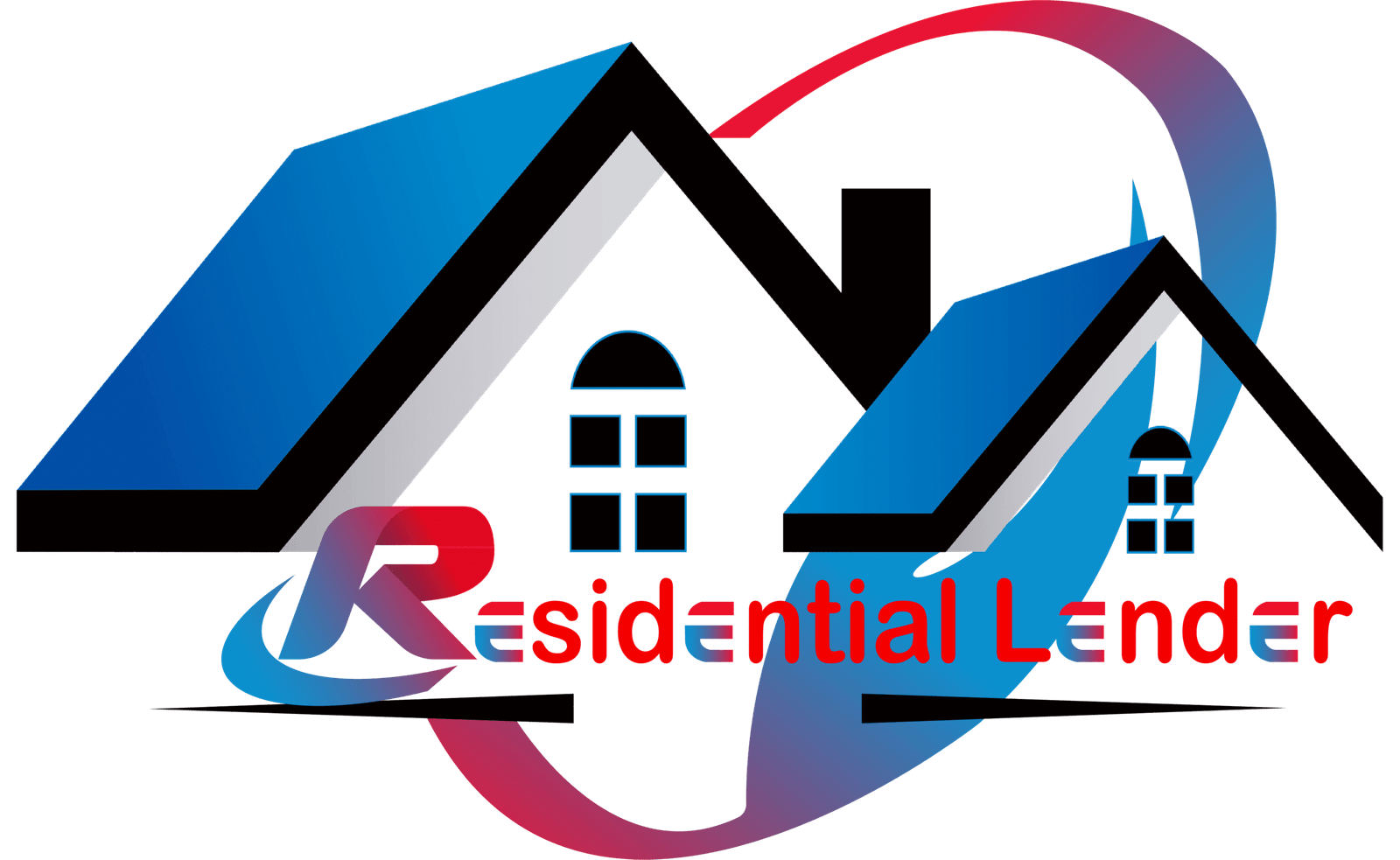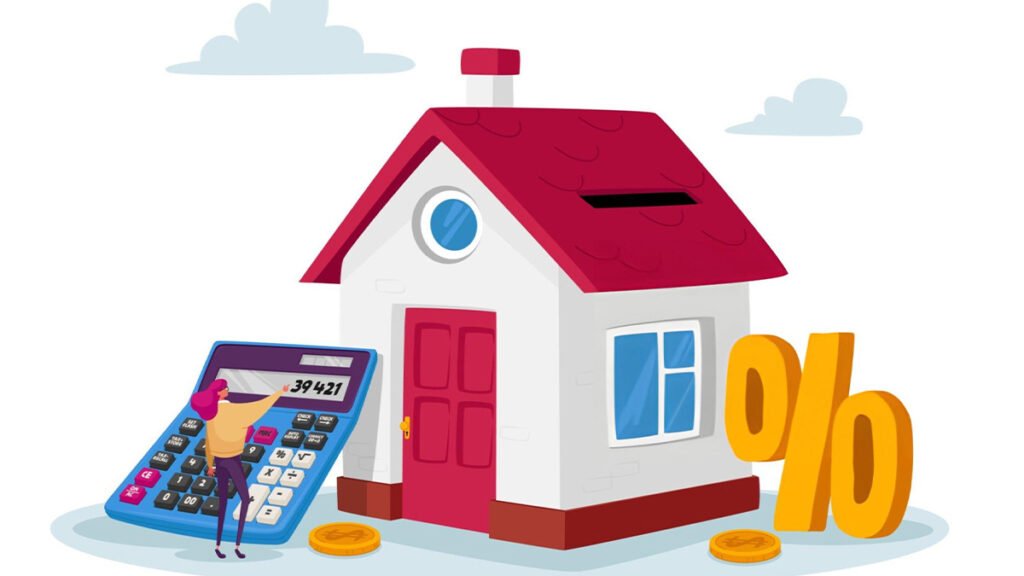A slightly lower interest rate on your mortgage can save you tens of thousands of dollars over the loan term. Finding the proper residential loan rates can significantly affect your financial future. That’s where residentiallender.net comes in. We’re dedicated to helping borrowers secure the best possible residential loans to save money and achieve their homeownership dreams.
Why Negotiating Residential Loan Rates Matters
The interest rate on your residential loan is like a hidden cost that significantly impacts your monthly payments and the total amount you’ll pay over the life of the loan. Even a slight reduction in the rate can translate to substantial savings, freeing up valuable resources for your business.
Here’s why negotiating your residential loan rate is crucial:
- Impact on Monthly Payments: A lower interest rate directly translates to a lower monthly payment. This frees up monthly cash flow, which you can use to reinvest in your business, build an emergency fund, or reduce your financial burden.
- Reduced Overall Loan Cost: The interest rate is the cost of borrowing money. A lower rate means you pay less interest over the entire loan term. This can amount to tens of thousands of dollars saved on a typical loan.
- Saving Big with Small Reductions: Even a tiny difference in the interest rate can lead to significant savings. For example, on a $200,000 loan over 30 years, a 0.5% reduction in the rate could save you tens of thousands of dollars in total interest paid.
Negotiating your residential loan rate empowers you to take control of your borrowing costs. Securing a better rate puts your business in a stronger financial position for long-term success.
Building Your Negotiating Power for Residential Loan Rates

Negotiation is critical to securing the best residential loan rate for your business. However, lenders are more likely to budge if you present a solid financial profile and demonstrate market awareness. Here’s how to build your negotiating power:
Strengthening Your Financial Profile
- Credit Score: Your credit score significantly influences your interest rate. A higher score signifies lower risk to the lender and translates to better loan terms. Aim for a score above 740, which is considered excellent. Here are some tips to improve your credit score:
- Pay bills on time and consistently.
- Keep credit card balances low (ideally below 30% of your credit limit).
- Review your credit report for errors and dispute them if necessary.
- Limit applying for new credit lines.
- Debt-to-Income Ratio (DTI): A healthy DTI ratio shows lenders you manage your debts responsibly. A lower DTI (ideally below 36%) improves your chances of loan approval and strengthens your negotiating leverage for a better rate.
- Down Payment: The larger your down payment, the stronger your position. A higher down payment reduces the loan amount the lender needs to approve, making you a less risky borrower. This can lead to a significantly lower interest rate and potentially eliminate the need for private mortgage insurance (PMI).
Understanding the Market
- Research Current Rates: Don’t settle for the first offer—research current residential loan rates various lenders offer. Use online resources or consult with mortgage brokers for a clear market picture.
- Stay Informed: Market trends and economic factors can significantly impact interest rates. Follow financial news and keep yourself updated on these factors. This knowledge empowers you to negotiate based on current conditions and time your application strategically.
By presenting a solid financial profile and demonstrating market awareness, you’ll be well-positioned to negotiate effectively and secure the best possible residential loan rate for your business venture.
Strategies for Effective Negotiation: Securing the Best Residential Loan Rate

Negotiating your residential loan rate can significantly impact your business finances. Here are key strategies to get the best deal:
Shop Around and Get Multiple Quotes
Refrain from accepting the first offer you receive. The key to successful negotiation is having leverage. By getting quotes from several lenders, you can compare rates and terms. This allows you to:
- Identify the Best Rates: Comparing quotes helps you pinpoint lenders offering the most competitive residential loan rates for your situation.
- Gain Negotiating Power: Having multiple offers demonstrates you’re a desirable borrower, giving you more leverage to negotiate a lower rate with your preferred lender.
While ResidentialLender.net may not be an established company, many reputable mortgage brokers can connect you with a network of lenders offering competitive rates.
Leverage Competing Offers to Get a Better Deal
Once you have multiple quotes, use them to your advantage. Here’s how:
- Highlight the Best Offer: Inform your preferred lender about a lower rate you received from another lender. Explain your interest in working with them, but emphasize the need for a competitive rate.
- Maintain Professionalism: Negotiation should be a professional conversation. Focus on the facts (the lower rate) and your desire to do business with them. Avoid being aggressive or making ultimatums.
Consider Loan Options and How They Affect Negotiation
There are different types of residential loans, each with an interest rate structure. Here’s a brief overview:
- Fixed-Rate Mortgages: Offer consistent interest rate stability throughout the loan term. Negotiation may focus on securing the best possible fixed rate upfront.
- Adjustable-Rate Mortgages (ARMs): Interest rates can fluctuate based on market conditions. Negotiation might involve getting a lower initial rate or favorable adjustment terms.
A residential loan expert can help you understand the pros and cons of each option and how they might impact your negotiation strategy.
By following these strategies, you can confidently approach your negotiation and secure the best possible residential loan rate for your business venture. The goal is to find a mutually beneficial agreement with your chosen lender.
Beyond Interest Rates: Understanding Loan Fees to Secure the Best Deal

While securing a great interest rate on your residential loan is crucial, it’s only part of the picture. Loan fees can add a significant amount to the overall cost of borrowing. Don’t get caught off guard by hidden expenses!
- Closing Costs: These are fees associated with finalizing the loan, typically including appraisal charges, title search and insurance, origination fees, and recording fees. Closing costs can vary depending on the loan amount, location, and lender.
- Other Loan Fees: Additional fees may include application, underwriting, and document preparation charges.
Here’s why considering loan fees is essential:
- Impact on Out-of-Pocket Expenses: Closing costs and other fees can significantly increase the cash you need upfront to secure the loan. Factoring these costs into your budget ensures sufficient funds for a smooth closing process.
- Accurate Cost Comparison: To compare lenders accurately, consider the interest rate and the total loan fees. Higher fees with one lender might offset a seemingly lower interest rate than another.
Finding a reputable lender who provides a transparent breakdown of all loan fees, including closing costs, is essential. While Residential Lender.net may not be an established company, many mortgage lenders prioritize transparency and offer a clear upfront picture of the complete borrowing costs.
By understanding interest rates and loan fees, you’ll be well-equipped to negotiate and secure the most cost-effective residential loan for your business needs.
Unlocking Business Growth with Favorable Loan Rates
Many businesses have successfully leveraged residential loans to achieve their financial goals. Here are a few examples:
- Thriving bakery expands: Ayla K, a passionate baker, used a loan secured on his home through a reputable mortgage broker to open her dream bakery. The competitive interest rate she obtained allowed her to invest in top-of-the-line equipment and expand his menu, leading to a thriving business.
- E-commerce entrepreneur scales up: Steve P, a talented e-commerce entrepreneur, used a loan on his investment property to increase his inventory and marketing efforts. The favorable terms he secured through a professional lender helped him scale his business significantly.
- Local gym expands reach: A local gym owner used a residential loan to acquire additional space and upgrade their facilities. The flexible loan options offered by their mortgage broker allowed them to cater to a broader clientele and solidify their position in the community.
These are just a few examples of how securing the right residential loan with a favorable rate can empower businesses to achieve their goals. By working with a qualified mortgage professional, you, too, can unlock the potential of residential real estate to fuel your business success.
Get the Best Residential Loan Rate for Your Business Success
Securing your business venture’s best residential loan rate is crucial for financial success. Here’s a quick recap:
- Negotiate Effectively: A strong credit score, a healthy DTI ratio, and a larger down payment strengthen your negotiating position. Research current rates and understand market trends to empower your negotiation.
- Shop Around and Compare: Get quotes from multiple lenders to identify the most competitive rates and terms. Leverage competing offers to negotiate a better deal with your preferred lender.
- Look Beyond Interest Rates: Factor in closing costs and other loan fees when comparing lenders. A transparent lender will provide a clear breakdown of all borrowing costs upfront.
Following these steps, you can secure a residential loan with a favorable interest rate and minimize overall borrowing costs, freeing up valuable resources to fuel your business growth.
While ResidentialLender.net may not be operational, numerous reputable mortgage brokers and lenders can assist you. They can guide you through the loan process, connect you with competitive rates, and ensure you get the best financing solution for your business needs.
Are you ready to take the next step? Contact a qualified mortgage professional today to discuss your business goals and get personalized assistance navigating the loan process. Schedule a consultation to explore your options and unlock the power of residential real estate to fuel your business success!
FAQs
Can I use residential property to secure a loan for my business?
Yes, in some cases, you can leverage residential property, such as your own home or an investment property, to obtain a loan for your business. This could be a good option if you have built equity in the property and need capital to launch or grow your business.
What are the main factors lenders consider when evaluating a residential loan for business purposes?
Lenders will assess your overall financial health, including:
- Credit score: A high credit score demonstrates your ability to manage debt responsibly.
- Debt-to-Income Ratio (DTI): A healthy DTI shows you have sufficient income to cover your existing debts and the proposed loan.
- Down payment: A larger down payment reduces the loan amount and risk for the lender, potentially leading to a better rate.
- The loan-to-value ratio (LTV) compares the loan amount to the property value. A lower LTV is more favorable to lenders.
- Business plan: If applicable, a strong business plan outlining your venture and repayment strategy can strengthen your application.
What are the different types of residential loans I can consider?
The two main types are:
- Fixed-Rate Mortgage: Offers a stable interest rate throughout the loan term.
- Adjustable-Rate Mortgage (ARM): The interest rate can fluctuate based on market conditions.
Besides interest rates, what other loan costs should I know?
Closing costs are a significant factor. These include appraisal, title search and insurance, origination, and recording fees. There may also be application fees, underwriting fees, and document preparation charges. Be sure to factor in all these costs when comparing loan offers.
How can I get my business’s best possible residential loan rate?
Here are some key strategies:
- Improve your credit score and DTI ratio.
- Save for a larger down payment.
- Shop around and compare rates from multiple lenders.
- Negotiate with your preferred lender using competing offers.
- Work with a reputable mortgage professional who can guide you through the process.








